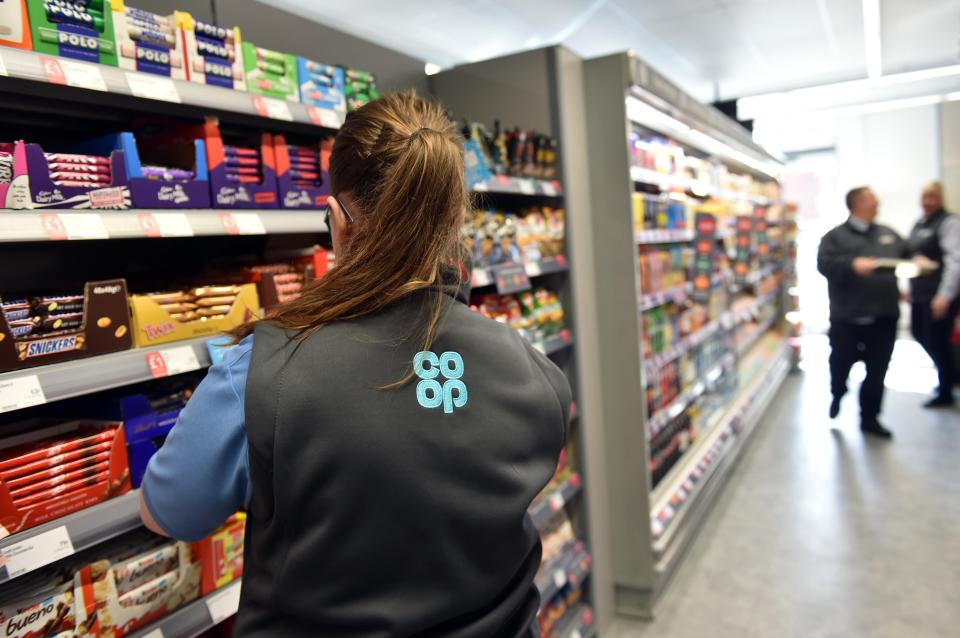A MAJOR supermarket chain with 2,500 branches across the UK is set to shut one of its stores in weeks.
The branch will welcome in customers for the final time next month as locals and shoppers share their disappointment.
The Co-op branch in Honiton, East Devon, will close for good on March 15, The Midweek Herald reports.
Shoppers and locals have been left dismayed at the closure, with almost 200 writing thank you cards to staff at the branch.
Others have posted on Facebook sharing their disappointment the store will permanently shut.
One said: “We have to use the shops in Honiton. Use them or lose them.”
Read more on Store Closures
Another dejectedly said: “Another empty shop.”
Richard Foord, MP for Honiton and Sidmouth, has also weighed in, saying a number of locals had written to him concerned about the closure of the Co-op branch.
The closure comes with a further Co-op store in Oswestry, Shropshire, set to shut in July.
A site in Nottingham also closed permanently in November last year after 50 years.
It’s worth bearing in mind though, retailers often open and close stores based on customer demand and trends.
Central Co-op, which operates separately to the Co-operative Group, for example has pulled down the shutters on 16 shops since November.
Sites have closed in Leicester, Dudley, Broughton, Cromer and Peterborough.
However, it has opened five new stores and is in the process of refurbishing 35 other branches and 15 funeral homes.
The Sun asked Co-op to comment.
HIGH STREET STRUGGLES
The high street has struggled in recent years as the trend towards online shopping intensifies.
The most recent data from the Office for National Statistics (ONS) shows online retail sales increased from 5% of all retail sales in 2008 to 27% in 2022.
Shoppers have also been feeling the pinch following surging inflation which has dented their budgets.
Why are retailers closing shops?
EMPTY shops have become an eyesore on many British high streets and are often symbolic of a town centre’s decline.
The Sun’s business editor Ashley Armstrong explains why so many retailers are shutting their doors.
In many cases, retailers are shutting stores because they are no longer the money-makers they once were because of the rise of online shopping.
Falling store sales and rising staff costs have made it even more expensive for shops to stay open.
The British Retail Consortium has predicted that the Treasury’s hike to employer NICs from April 2025, will cost the retail sector £2.3billion.
At the same time, the minimum wage will rise to £12.21 an hour from April, and the minimum wage for people aged 18-20 will rise to £10 an hour, an increase of £1.40.
In some cases, retailers are shutting a store and reopening a new shop at the other end of a high street to reflect how a town has changed.
The problem is that when a big shop closes, footfall falls across the local high street, which puts more shops at risk of closing.
Retail parks are increasingly popular with shoppers, who want to be able to get easy, free parking at a time when local councils have hiked parking charges in towns.
Many retailers including Next and Marks & Spencer have been shutting stores on the high street and taking bigger stores in better-performing retail parks instead.
In some cases, stores have been shut when a retailer goes bust, as in the case of Carpetright, Debenhams, Dorothy Perkins, Paperchase, Ted Baker, The Body Shop, Topshop and Wilko to name a few.
What’s increasingly common is when a chain goes bust a rival retailer or private equity firm snaps up the intellectual property rights so they can own the brand and sell it online.
They may go on to open a handful of stores if there is customer demand, but there are rarely ever as many stores or in the same places.
The Centre for Retail Research (CRR) has warned that around 17,350 retail sites are expected to shut down this year.
The Centre for Retail Research said in 2024 alone more than 13,000 shops closed across the UK.
The vast majority of these stores were independent though, with only around 2,000 shops owned by larger chains shutting.
Some major supermarket chains are increasing the number of stores they operate across the UK too.
Aldi and Lidl both want to open hundreds of stores between them while Home Bargains has plans to open hundreds of shops.
Do you have a money problem that needs sorting? Get in touch by emailing money-sm@news.co.uk.
Plus, you can join our Sun Money Chats and Tips Facebook group to share your tips and stories









